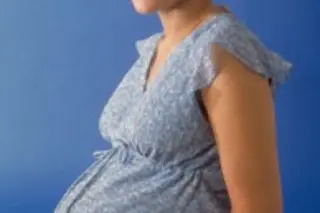Credit: USDA A few years back I was rather fixated on issues of maternal fetal health. In particular I was worried about gestational diabetes in relation to my wife because I come from an ethnic group with an elevated risk for these sorts of problems, and the effect when you are in mixed-race marriages seems to be additive (i.e., unlike some risk factors associated with pregnancies the mother's ethnicity is not the only relevant variable). This is embedded in the broader suite of metabolic diseases which exhibit ethnic variation. Early work on genome-wide selection in humans yielded the result that there was a strong enrichment for signals of adaption within regions of the genome associated with metabolism, so this should not be that surprising. Humans are a geographically dispersed species that inhabits a wide range of environments, so natural selection would shape the distribution of phenotypes within populations if evolution ...
Maternal-fetal health and natural selection
Explore the link between gestational diabetes and metabolic diseases during pregnancy, focusing on South Asian risks and nutritional demands.
More on Discover
Stay Curious
SubscribeTo The Magazine
Save up to 40% off the cover price when you subscribe to Discover magazine.
Subscribe













